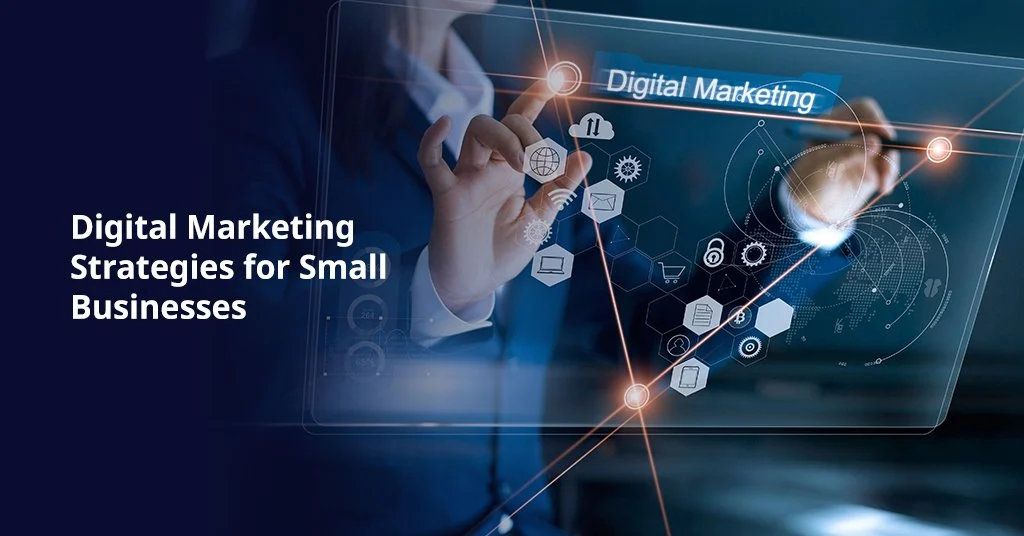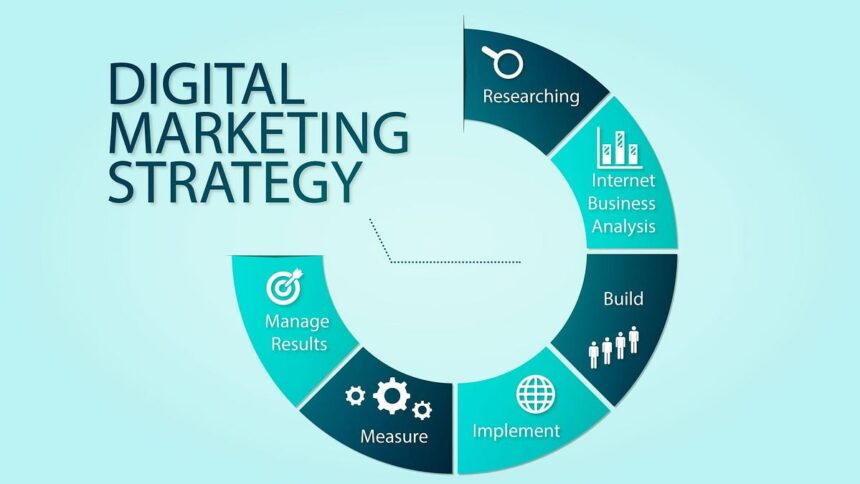In today’s fast-paced and ever-evolving business world, staying ahead of the competition requires more than just offering great products or services. Businesses must effectively market their offerings to reach and engage their target audience.
This is where digital marketing strategies come into play. Digital marketing has become an essential tool for businesses of all sizes, enabling them to engage with potential customers and expand their reach beyond traditional methods.
For businesses looking to leverage digital marketing effectively, implementing the right strategies can make all the difference. Whether you’re a small startup or an established enterprise, here are five digital marketing strategies every business should implement to stay ahead in the digital age.
1. Search Engine Optimization (SEO)
Search Engine Optimization (SEO) is one of the most crucial digital marketing strategies for improving the visibility of your website in search engines like Google. When potential customers search for products or services similar to yours, SEO ensures that your website appears in search results. The goal is to optimize your site in such a way that it ranks high for relevant keywords, making it easier for users to find you.
Effective SEO involves several key components:
- Keyword Research: Identifying the right keywords your audience is searching for.
- On-Page SEO: Optimizing your website’s content, titles, headings, and images for search engines.
- Technical SEO: Improving website speed, mobile responsiveness, and overall user experience.
- Backlink Strategy: Earning high-quality backlinks from reputable sources.
By investing in SEO, you increase your chances of showing up in front of potential customers who are actively searching for products or services you offer, thus driving organic traffic to your site.
2. Pay-Per-Click Advertising (PPC)
Pay-Per-Click (PPC) advertising is a powerful and direct way to drive traffic to your website. With PPC, you pay a fee each time someone clicks on your ad. This strategy is highly effective for businesses looking for immediate results in driving targeted traffic to their site.
Google Ads, Facebook Ads, and Bing Ads are popular platforms for PPC campaigns. Here’s how you can benefit from PPC:
Targeted Reach: You can target specific demographics, interests, locations, and behaviors to reach the right audience.
Cost-Effective: With PPC, you control your budget, and you only pay for actual clicks, making it a cost-effective way to reach a broader audience.
Measurable Results: PPC provides detailed data on how your ads are performing, allowing you to make informed adjustments to improve results.
A well-executed PPC campaign can deliver instant traffic, increase brand visibility, and generate leads. It’s an excellent complement to SEO, especially for businesses looking to generate quick results.
3. Social Media Marketing

Social media platforms like Facebook, Instagram, Twitter, and LinkedIn have become essential tools for businesses to connect with their audience. Social media marketing allows you to build brand awareness, engage with followers, and drive traffic to your website.
Here’s why social media marketing is crucial:
Brand Awareness: Social media provides an opportunity to showcase your brand personality and connect with customers on a personal level.
Engagement: Engaging with your followers through comments, polls, and posts helps build a loyal customer base.
Customer Feedback: Social media is a great way to gather feedback from your customers, allowing you to make improvements and address concerns.
Paid Advertising: Platforms like Facebook and Instagram offer highly targeted advertising options, helping businesses reach their ideal customers.
Consistency is key in social media marketing. By posting regularly, interacting with your audience, and offering valuable content, you can create a strong presence and grow your business.
4. Email Marketing
Despite the rise of new digital marketing strategies, email marketing remains one of the most effective methods for maintaining customer relationships and driving sales. Email marketing allows businesses to send personalized messages directly to their subscribers’ inboxes.
Key benefits of email marketing include:
Personalization: You can send tailored emails based on customer preferences, purchase history, and behavior, increasing the likelihood of engagement.
Segmentation: By segmenting your email list, you can send targeted messages to specific groups of customers, improving relevance and effectiveness.
Automation: Email marketing platforms offer automation tools that allow you to send emails at the right time, whether it’s a welcome message, a reminder about an abandoned cart, or a promotional offer.
Cost-Effective: Compared to other marketing channels, email marketing is relatively low-cost, making it a great option for businesses with limited marketing budgets.
Email marketing is an invaluable strategy for building strong customer relationships and driving repeat business, especially when combined with other digital marketing efforts.
5. Content Marketing
Content marketing is the creation and sharing of valuable, relevant content to attract, engage, and retain an audience. It’s a strategy that focuses on providing value to your audience through blogs, videos, infographics, and other forms of content.
Why content marketing is a must for every business:
- Builds Trust: By offering valuable and informative content, you position your business as an authority in your industry, building trust with your audience.
- Boosts SEO: Quality content that is optimized for SEO can help improve your search engine rankings, driving more organic traffic to your site.
- Engagement: Engaging content encourages users to interact with your brand, whether by commenting, sharing, or subscribing.
- Lead Generation: High-quality content can attract leads by providing solutions to your audience’s pain points. For example, an eBook or webinar can be used to capture email addresses for future marketing efforts.
Content marketing is a long-term strategy that requires consistency and creativity, but it can deliver substantial results over time. When done correctly, it’s one of the best ways to establish your business as a trusted resource and grow your customer base.
Conclusion
Implementing effective digital marketing strategies is essential for businesses looking to thrive in the competitive online marketplace. By integrating SEO, PPC, social media marketing, email marketing, and content marketing into your overall marketing plan, you can increase your visibility, attract more customers, and ultimately grow your business.
Remember, the key to success is not only adopting these strategies but also staying agile and adapting to new trends and technologies as they emerge. With the right approach and consistent effort, you can harness the power of digital marketing to achieve long-term success.
By carefully crafting a digital marketing strategy tailored to your business goals and target audience, you can ensure that your business remains competitive in the digital landscape. Start implementing these strategies today and watch your business thrive in the digital age!

